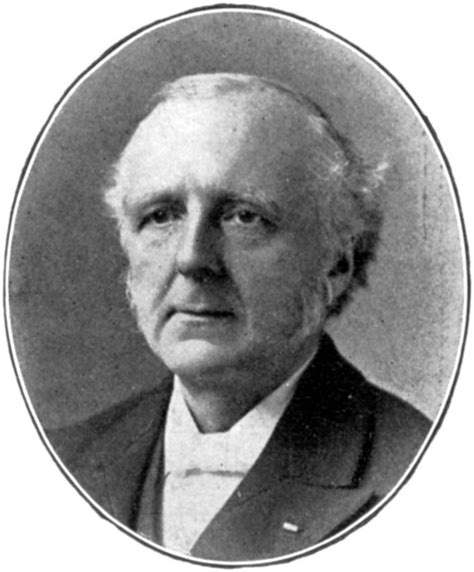A Quote by Erving Goffman
The stigmatized individual is asked to act so as to imply neither that his burden is heavy nor that bearing it has made him different from us; at the same time he must keep himself at that remove from us which assures our painlessly being able to confirm this belief about him. Put differently, he is advised to reciprocate naturally with an acceptance of himself and us, an acceptance of him that we have not quite extended to him in the first place. A PHANTOM ACCEPTANCE is thus allowed to provide the base for a PHANTOM NORMALCY.
Quote Topics
Able
About
Acceptance
Act
Advised
Allowed
Asked
Base
Bearing
Being
Belief
Burden
Confirm
Different
Differently
Extended
First
First Place
Heavy
Him
Himself
His
Imply
Individual
Keep
Made
Must
Naturally
Neither
Nor
Normalcy
Our
Phantom
Place
Provide
Put
Quite
Reciprocate
Remove
Same
Same Time
Thus
Time
Us
Which
Related Quotes
Loving ourselves is about acceptance, not always liking and feeling comfortable. In the same way I love my fiancé, I love him but don't always like his behavior. I don't always like what he says. But I accept him. I accept him because of these things. It doesn't mean I don't want our relationship to grow or progress. But I don't feel the need to change him. When I accept him for him, we grow naturally, and the same for our own self-love.
No tongue is able to declare the greatness of the love that Jesus bears to every soul: and therefore this Spouse, when he would leave this earth, in order that his absence might not cause us to forget him, left us as a memorial this Blessed Sacrament, in which he himself remained; for he would not that there should be any other pledge to keep alive our remembrance of him than he himself.
For here we are so blind and foolish that we never seek God until he, of his goodness, shows himself to us. It is when we do see something of him by his grace that we are stirred by that same grace to seek him, and with earnest longing to see still more of his blessedness. So I saw him and sought him; I had him and wanted him. It seems to me that this is and should be an experience common to us all.
The law of giving and receiving is fundamental, and relates just as much to God as it does to us. As we go through the door of giving ourselves to God in worship we find that God comes through that same door and gives Himself to us. God's insistence that we worship Him is not really a demand at all but an offer-an offer to share Himself with us. When God asks us to worship Him, He is asking us to fulfill the deepest longing in Himself, which is His passionate desire to give Himself to us. It is what Martin Luther called "the joyful exchange."
Jesus Christ has bought us with His blood, but, alas, He has not had His money's worth! He paid for ALL, and He has had but a fragment of our energy, time and earnings. By an act of consecration, let us ask Him to forgive the robbery of the past, and let us profess our desire to be henceforth utterly and only for Him- His slaves, owning no master other than Himself.
Let us serve Him faithfully as our Master. Let us obey Him loyally as our King. Let us study His teachings as our Prophet. Let us work diligently after Him as our Example. Let us look anxiously for Him as our coming redeemer of body as well as soul. But above all let us prize Him as our Sacrifice, and rest our whole weight on His death as atonement for sin. Let His blood be more precious in our eyes every year we live. Whatever else we glory in about Christ, let us glory above all things in His cross.
We thank Him less by words than by the serene happiness of silent acceptance. It is our emptiness in the presence of His reality, our silence in the presence of His infinitely rich silence, our joy in the bosom of the serene darkness in which His light holds us absorbed, it is all this that praises Him.
When God tells us to give extravagantly, we can trust Him to do the same in our lives. And this is really the core issue of it all. Do we trust Him? Do we trust Jesus when He tells us to give radically for the sake of the poor? Do we trust Him to provide for us when we begin using the resources He has given us to provide for others? Do we trust Him to know what is best for our lives, our families, and our financial futures?
He comes to us as One unknown, without a name, as of old, by the lakeside, He came to those men who knew Him not. He speaks to us the same words: "Follow thou me!" and sets us to the tasks which He has to fulfill for our time. He commands. And to those who obey Him, whether they be wise or simple, He will reveal himself in the toils, the conflicts, the sufferings which they shall pass through in His fellowship, and, as an ineffable mystery, they shall learn in their own experience Who He is.
We have to accept ourselves in order to write. Now none of us does that fully: few of us do it even halfway. Don’t wait for one hundred percent acceptance of yourself before you write, or even eight percent acceptance. Just write. The process of writing is an activity that teaches us about acceptance.
In place of our exhaustion and spiritual fatigue, God will give us rest. All He asks is that we come to Him...that we spend a while thinking about Him, meditating on Him, talking to Him, listening in silence, occupying ourselves with Him - totally and thoroughly lost in the hiding place of His presence.
God the Eternal Father did not give [the] first great commandment because He needs us to love Him. His power and glory are not diminished should we disregard, deny, or even defile His name. His influence and dominion extend through time and space independent of our acceptance, approval, or admiration."No, God does not need us to love Him. But oh, how we need to love God!"For what we love determines what we seek."What we seek determines what we think and do."What we think and do determines who we are—and who we will become.




































